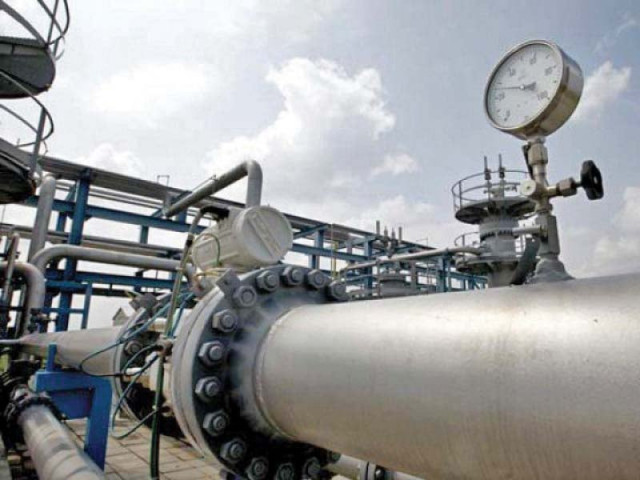OGRA approves 5.4% tariff hike
Increase will help recover shortfall in estimated revenue requirement for FY21

The Oil and Gas Regulatory Authority (Ogra) has allowed a 5.4% increase in the price of gas for consumers of Sui Southern Gas Company (SSGC).
The regulator allowed the hike in the prescribed price of gas while determining the estimated revenue requirement (ERR) of SSGC for financial year 2020-21.
The oil and gas regulator allowed the price increase in order to recover shortfall of Rs14,270 million in the ERR for financial year 2020-21, including prior year shortfall of Rs50,983 million. The new prescribed price has been determined at Rs778.59 per million British thermal units (mmbtu).
The authority also allowed the gas utility to increase meter rent from Rs20 to Rs40 per month for domestic consumers.
In its decision, Ogra states, “If the federal government fails to so advice within the said 40 days and the prescribed price for any category of retail consumers determined by the authority is higher than the most recently notified sale price for that category of retail consumers, the authority shall be obligated to notify in the official gazette the prescribed price as determined by the authority to be the sale price for the said category.”
The regulator suggested that the petitioner should make concerted efforts for reduction in unaccounted-for-gas (UFG) level, improvement in internal control systems, increase in efficiency, quality of service, emergency response plan and effective cost control and reduction measures to remain financially viable instead of seeking to pass on the cost associated with its own inefficiencies, malpractices, theft, bad debt and alike to the consumers.
During a public hearing, the SSGC managing director explained that the petitioner’s ERR for the said year reflected a surplus of Rs22,745 million. However, the inclusion of Rs50,983 million, the unadjusted shortfall for prior years up to FY18, resulted in a shortfall of Rs28,242 million or Rs78.95 per mmbtu for the indigenous gas business.
The petitioner briefly explained the reasons behind its claims including transmission and distribution (T&D) expenses and fixed assets.
Read: OGRA grants licences to two virtual pipeline firms
The petitioner requested the authority for upfront adjustment of human resources cost and other expenses for its recovery as the year-end allowance resulted in adjustment of gas development surcharge (GDS) or accumulation of revenue shortfall.
Interveners during the hearing said that it was highlighted that ERR’s scope was limited to the extent of actual changes in wellhead gas prices/ cost of gas.
It was highlighted that dollar prices of crude oil and HSFO were volatile. Therefore, the petitioner’s estimates should be checked by the authority.
Moreover, the dollar parity had been taken by the petitioner at an exaggerated level, since in recent months an increase in rupee parity against the dollar had been observed.
Textile is one of the largest gas consumer groups with record earnings of foreign exchange for the country and a 20% increase in exports. Increased cost, if any, allowed by the authority would affect/ reduce textile sector exports.
Cross-subsidy was vehemently opposed by the textile sector since it affected its competitiveness in the international market.
It was requested to allow new gas connection to the export-oriented industry in Karachi as it would increase the country’s exports and bring foreign exchange. It was also suggested that a ban, if any, needed to be abolished.
The interveners demanded that the exorbitant cost and expenditure by the petitioner’s management must be capped or linked to actual performance improvement as the same was ultimately passed on to the consumers.
They said that the reduction in world oil prices must be passed on to the industry as per defined formula, otherwise, it would have a devastating effect on Pakistan’s economy. It was demanded that gas companies be asked to cut their rate of return from 17.5% to 15%.
Published in The Express Tribune, January 29th, 2021.
Like Business on Facebook, follow @TribuneBiz on Twitter to stay informed and join in the conversation.


















COMMENTS
Comments are moderated and generally will be posted if they are on-topic and not abusive.
For more information, please see our Comments FAQ